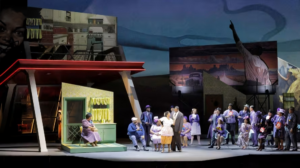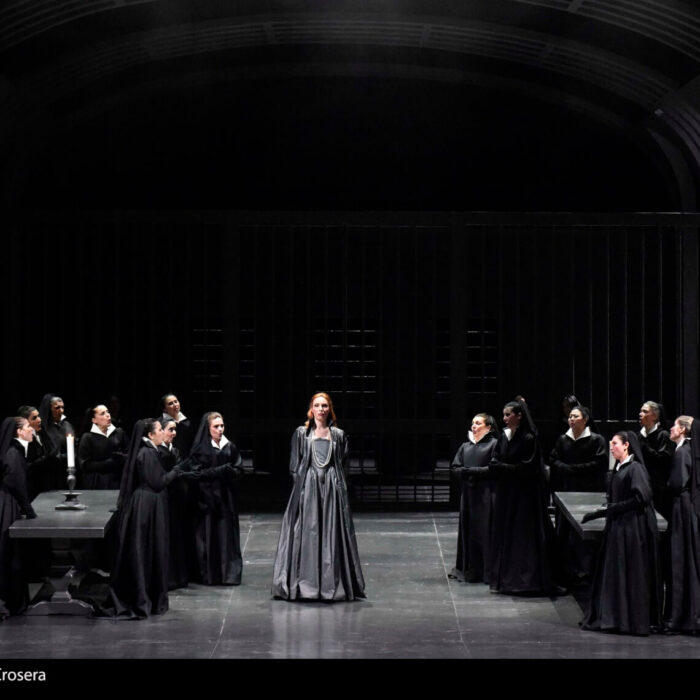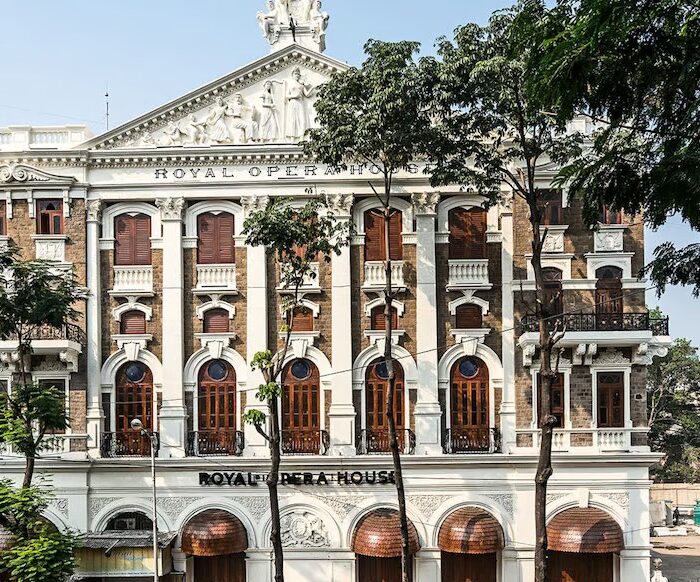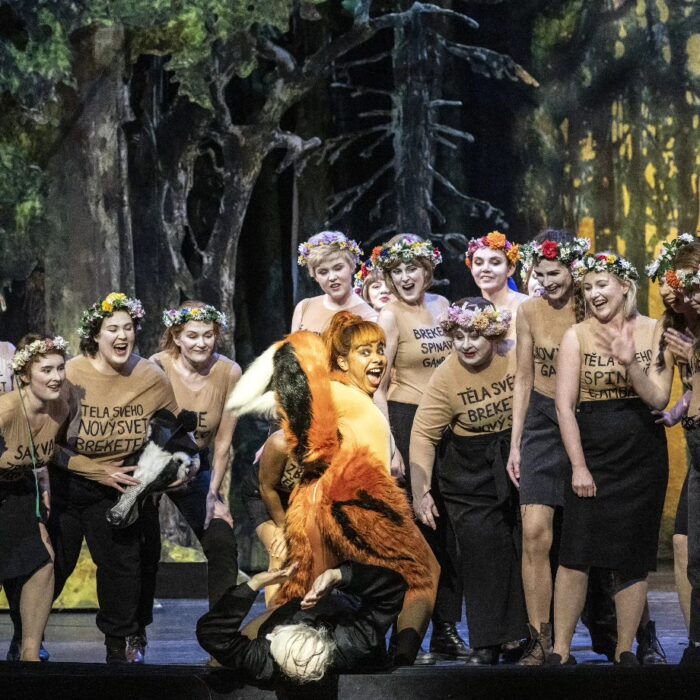
A Tale of 3 Operas & Their Unique Revival Stories
By John Vandevert(Photo Credit: LA Opera/Cory Weaver)
Throughout time, many operas have been written which, due to the nature of things, distracts from their quality, instead leaving them behind for other, newer alternatives. However, thanks to opera’s dedicated fanbase, including everyone from laymen to academics to performers and beyond, many operas which didn’t get their fair shot are given new life after their premiere. Many of the operas throughout history have come under new investigation, operas like Giacomo Meyerbeer’s 1836 ‘grand opera,’ namely “‘Les Huguenots,” Giacomo Puccini’s less-successful second opera, “Edgar,” and the operas from the late-1950s onwards, opera’s ‘post-war’ era to the turn of the 21st-century to the very present, are now being looked at with greater clarity for their importance.
From the experimentation of the late-20th century avant garde when techniques like serialism, expressionism, new simplicity, spectralism, Neo-Romanticism, and even aleatoricism were combining to form radically new ways of composing. However, despite the sheer amount of progress made in compositional methods after 1945 to the developing present, one of the most interesting is our interest in reviving forgotten, long since shelved, and generally underperformed operas from the past, giving them new life for a radically changed world and an equally changed audience. In this article, we’ll look at three operas which, thanks to revivals, gained new ground in the world of contemporary opera history, proving that an opera’s performance frequency hardly equals quality!
Leonora (Ferdinando Paer)
Composed by Ferdinando Paer in the early days of the 19th-century, his operatic style greatly reflected the higher side of the Classical period before its eventual overcoming into Romanticism to follow. Written after several other operatic achievements written during his time as Director of the Theater am Kärntnertor, the same place where Beethoven’s ‘Symphony No. 9’ and Donizetti’s ‘Linda di Chamounix’ were premiered, Paer’s opera about determined love was very much of its time when written. Considered within the generation of composers right before compositional change into the style associated with Rossini and the diverse expressions of ‘bel canto’ lyricism, the opera unfortunately fell out of performance despite its celebration by those like Beethoven. Premiering in Dresden in 1804 at the Kurfürstliches Theater, it was performed again in 1821 but then set down again until the mid-1970s, only to be taken seriously in the 2000s onwards, of which October of 2024 will give the opera it’s American premiere with the Chicago Opera Theatre.
L’arbore di Diana (Vicente Martín y Soler)
Considered to be Mozart’s equivalent, student of Franciscan Giovanni Battista Martini, the very same theoretical mentor of Mozart, Vicente Martín y Soler’s opera was written after his move to Vienna from Naples after having worked in the court of Charles IV of Spain. His move to Vienna proved to be critical for the composer, as once he had collaborations with some of the most important composers of the day ensued, from Salieri to Mozart himself. Among his other ‘Vienna operas,’ the widely acclaimed, ‘Una cosa rara,’ quoted by Mozart in Act 2 of, ‘Don Giovanni,’ typifies the qualities of a truly ‘Italian’ operatic style, various exchanges with intertwining arias, duets, and trios, with beautiful melodies and highly ornamented musical virtuosity. With a libretto by the prolific Lorenzo Da Ponte, after the opera’s premiere in 1787, but soon fell out of performance as did most of Martin’s works. It was revived in the early-2000s and just last year, the work was once again revived thanks to the efforts of the New England Conservatory of Music.
Highway 1, USA (William Grant Still)
A wonderful example of post-WWI American musical development, William Grant Still’s entire career is one marked by a continuous relationship with both European and American musical and cultural traditions. A student of the eminent American composer George Whitefield Chadwick, a member of the ‘Second New England School,’ and French emigrant Edward Varese, quasi-father of the electronic musical composition, Still’s final opera was written in 1962 after a rather long career of many firsts. Among them, Still’s third opera, ‘Troubled Island,’ was the first opera by an African-American composer performed by the New York City Opera at the time, but it was the final opera which finished his operatic career. The story is about a couple, Bob and Mary, and their tribulations with Mary’s younger brother, Nate. Detailing the extent of self-sacrifice, the opera it was first premiered in 1963 but fell from performance quickly thereafter. It was revived in 2021 by Opera Theatre of Saint Louis and was performed in 2023 in a three-way collaboration in New York.
Categories
Special Features

